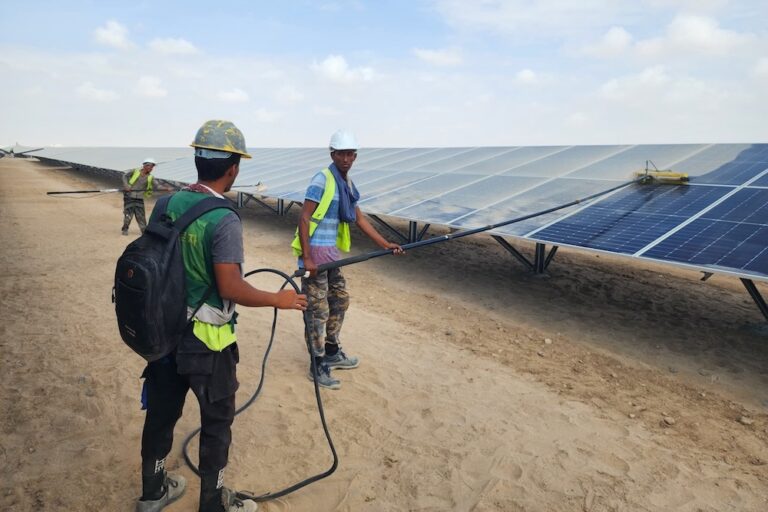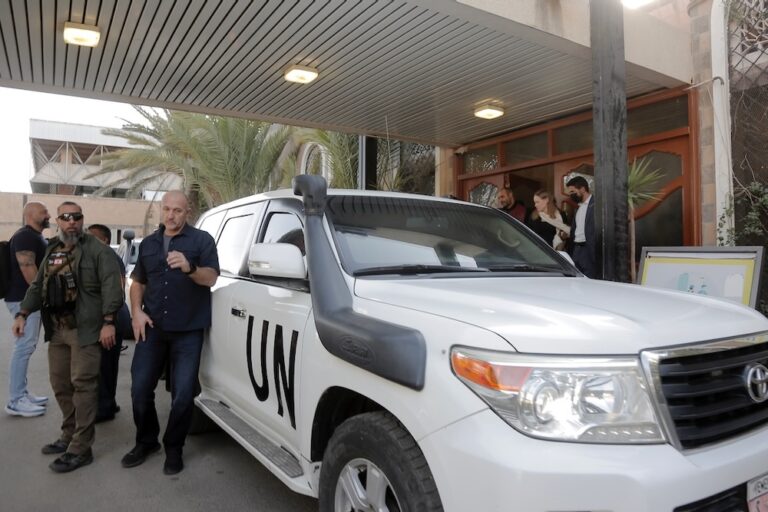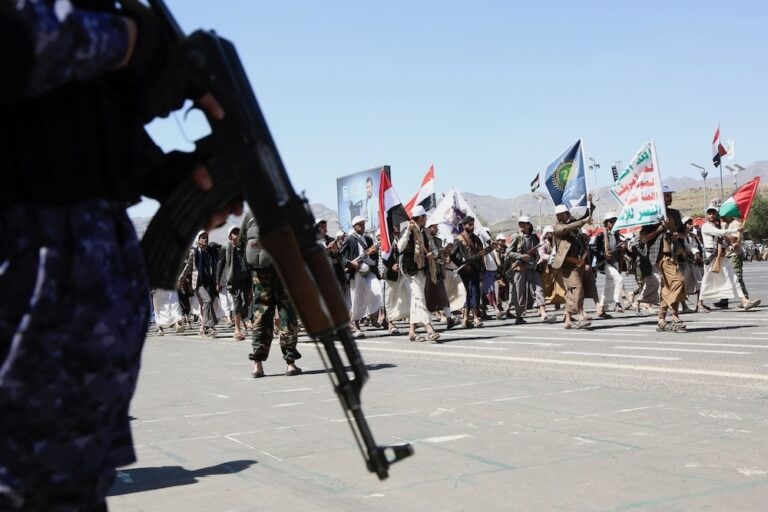The Committee to Protect Journalists condemns an ongoing campaign to suppress independent journalism in Yemen and urges President Ali Abdullah Saleh to immediately bring it to a halt and order the release of two detained bloggers
(CPJ/IFEX) – New York, May 12, 2009 – The Committee to Protect Journalists condemns an ongoing campaign to suppress independent journalism in Yemen and urges President Ali Abdullah Saleh to immediately bring it to a halt and order the release of two detained bloggers. Also, authorities have announced a special court to try media and publishing offenses.
One of the latest victims of the media crackdown launched nearly two weeks ago is Yahya Bamahfud, a blogger and former editor of the Hadhramaut news Web site. Security forces arrested Bamahfud on Sunday night in the city of Mukalla in the southern governorate of Hadhramaut. They stormed his home without a warrant and confiscated his computer and documents before taking him to an unknown location, local journalists told CPJ.
This is the second arrest of a blogger in Mukalla since last week. Security forces arrested Fuad Rashid, editor-in-chief of Mukalla Press Web site. He had covered recent clashes, which began on April 27 between security forces and disaffected residents of the southern region of Yemen. The eruption of violence occurred on the eve of the 15th anniversary of a short-lived civil war that ended with the victory of northern troops.
“We urge President Saleh to order the release of our colleagues without delay and to bring this shameful campaign to uproot independent reporting to an end,” said Mohamed Abdel Dayem, CPJ’s Middle East and North Africa program coordinator. “Stifling freedom of expression runs counter to Yemen’s avowed commitment to democracy and reform.”
In another disturbing development, the country’s High Judicial Council announced on Monday, amid protests from journalists and human rights defenders, the establishment of a new court to examine cases related to media and publishing offenses. Minister of Justice Ghazi Shayef Al-Aghbari said the decision to establish this “special press court” was “not politically motivated, but purely professional.”
Abdel Karim al-Khaiwani, whose commitment to independent journalism led to repeated instances of judicial harassment and imprisonment described the court as a “huge step backward” and a “flagrant violation of the constitution and international law.”
“We condemn this exceptional tribunal and the failure on the part of the Yemeni authorities to abide by international standards for freedom of expression and an independent judiciary in the strongest terms,” said Abdel Dayem.
Meanwhile the Aden-based independent daily Al-Ayyam, and the home of its editor, Hisham Basraheel, remained under police surveillance. A blockade by security forces intensified on Monday. But on Tuesday only a few plainclothes police turned up, local journalists told CPJ. The purpose of the siege, in place since May 1, appears to be to prevent the distribution of the most popular daily in the country. Three weeklies, Al-Masdar, Al-Ahali, and Al-Share, among the eight newspapers prevented from hitting the newsstands earlier this month, were published this week. Another weekly, Al-Nida, is expecting to resume distribution on Wednesday, its editor Sami Ghali told CPJ.
“There is an intense and dangerous campaign of incitement against independent newspapers,” said Ghali. “Imams of Yemeni mosques received instructions to welcome the government decisions to suspend newspapers.”
Ghali and other independent journalists acknowledge that the main aim of the current campaign against independent reporting is to silence the influential daily Al-Ayyam. Bader Basaneed, one of Bashraheel’s lawyers, explained that the police siege imposed on his client’s home and an attempt to force him to appear in a court in Sana’a in an old case “has no legal basis and is simply an instance of abuse of power.” Bashraheel Bashraheel, the editor’s son, told CPJ that legal action against the government is under way to compensate the “huge losses” caused by the decision to block the distribution of Al-Ayyam.
Committee to Protect Journalists is a New York-based, non profit, non-partisan organization dedicated to defending press freedom around the world.


